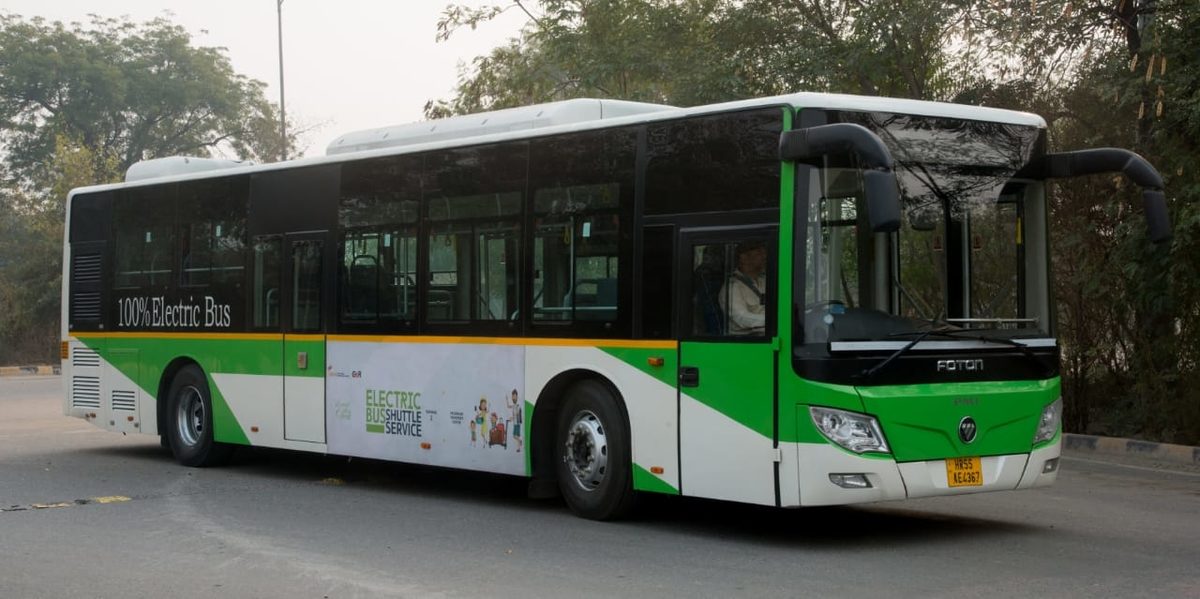A new study by Climate Trends assesses the comprehensiveness of all state EV policies based on the various incentives they offer and draws a comparison among all policies to facilitate peer-to-peer learning. It also assesses the impact of state policies that have been active for two years or more.
Of the 36 states and union territories in the country, 26 have released EV policies over the last five years, with 16 of them released between 2020 and 2022. Eight states (Andhra Pradesh, Bihar, Karnataka, Kerala, Madhya Pradesh, Tamil Nadu, Telangana, and Delhi) released their policies before October 2020, and have policies in circulation for two years or more.
“With e-mobility expansion placed as one of the key pillars in achieving faster decarbonization across the country, the success of state EV policies is both significant and necessary for India’s carbon reduction goals. It is a good sign that the majority of Indian states have EV policies, however, a successful transition to zero-emission transport depends on the effectiveness of their design and implementation. It also depends on having a national transport electrification target, which currently doesn’t exist in India,” said Aarti Khosla, Director of Climate Trends.
The study shows that few state policies have comprehensive designs which balance EV sales, manufacturing, and overall ecosystem growth. There are gaps in implementation, leading to slower on-ground impact, which needs to be addressed through better regulation, improved monitoring, mechanisms, and capacity building of stakeholders across the policy value chain.
Key findings
The report has defined 21 parameters across demand and supply side incentives, mandates for charging and fleet electrification, focus on battery recycling, skill development, job creation, etc.
It finds Maharashtra, Haryana, Delhi, and Uttar Pradesh have the widest range of parameters (13-15) included in their policies, making them the most comprehensive policies.
Arunachal Pradesh, Manipur, Himachal Pradesh, Ladakh, Kerala, and Uttarakhand have the least comprehensive policies with only 3-7 defined parameters included.
Delhi, Odisha, Bihar, Chandigarh, and Andaman & Nicobar have the widest range of demand-side incentives for consumers, including road tax and registration fee exemption, subsidy on the upfront cost of 2-, 3-, 4-wheelers and buses in addition to FAME II, retrofitment or scrappage incentives, and electricity tariff incentives for charging.
Andhra Pradesh, Arunachal Pradesh, Manipur, Karnataka, Himachal Pradesh, Gujarat, Madhya Pradesh, Tamil Nadu, and Kerala offer only one or two demand-side incentives.
Tamil Nadu, Haryana, and Andhra Pradesh have the strongest supply-side incentives, with special support to boost EV manufacturing, apart from incentives offered in the state’s industrial policy.
Only nine states have mandated the creation of charging infrastructure in new residential buildings, offices, parking lots, malls, etc. These include Chandigarh, West Bengal, Andhra Pradesh, Tamil Nadu, Odisha, Delhi, Maharashtra, Meghalaya, and Ladakh.
Impact of state policies
The study finds that none of the eight states where policies have been active for two years or more is on track to meet their targets of EV penetration, charging infrastructure, or investments.
Madhya Pradesh aims for 25% of all newly registered vehicles to be electric by 2026, but its current penetration stands at 2.2% of total vehicle sales since the policy launch.
Delhi’s EV penetration stands at 7.2% against its target of 25% by 2024. Tamil Nadu has no defined target but EV penetration is a mere 2.02% of registered vehicles.
Across all 8 states, penetration of electric buses is far below policy targets. Tamil Nadu aims for 5% of buses to be electric but has no e-buses on the ground yet. Kerala aims for 6,000 buses by 2025 but has only 56 on the ground.
Delhi, with the highest charging stations and points, has only made it to 9.6% of its 2024 target of having 30,000 charging stations.
Recommendations
The report recommends states reassess their policy designs to make them more comprehensive and well-balanced for the growth of EV sales and the overall EV ecosystem, as well as have a longer-term vision till 2030.
It also recommends a greater focus on fleet electrification through mandates for cab aggregators, last-mile delivery services, and e-commerce companies.
Electrification of public transport will be key for zero emissions transport, and all policies must build mechanisms to achieve their bus electrification targets.
And finally, the lack of on-ground progress in policies active for two years or more, highlights the need for monitoring policy implementation, to achieve greater impact, and recognize opportunities to course correct and revise policies.
This content is protected by copyright and may not be reused. If you want to cooperate with us and would like to reuse some of our content, please contact: editors@pv-magazine.com.









1 comment
By submitting this form you agree to pv magazine using your data for the purposes of publishing your comment.
Your personal data will only be disclosed or otherwise transmitted to third parties for the purposes of spam filtering or if this is necessary for technical maintenance of the website. Any other transfer to third parties will not take place unless this is justified on the basis of applicable data protection regulations or if pv magazine is legally obliged to do so.
You may revoke this consent at any time with effect for the future, in which case your personal data will be deleted immediately. Otherwise, your data will be deleted if pv magazine has processed your request or the purpose of data storage is fulfilled.
Further information on data privacy can be found in our Data Protection Policy.